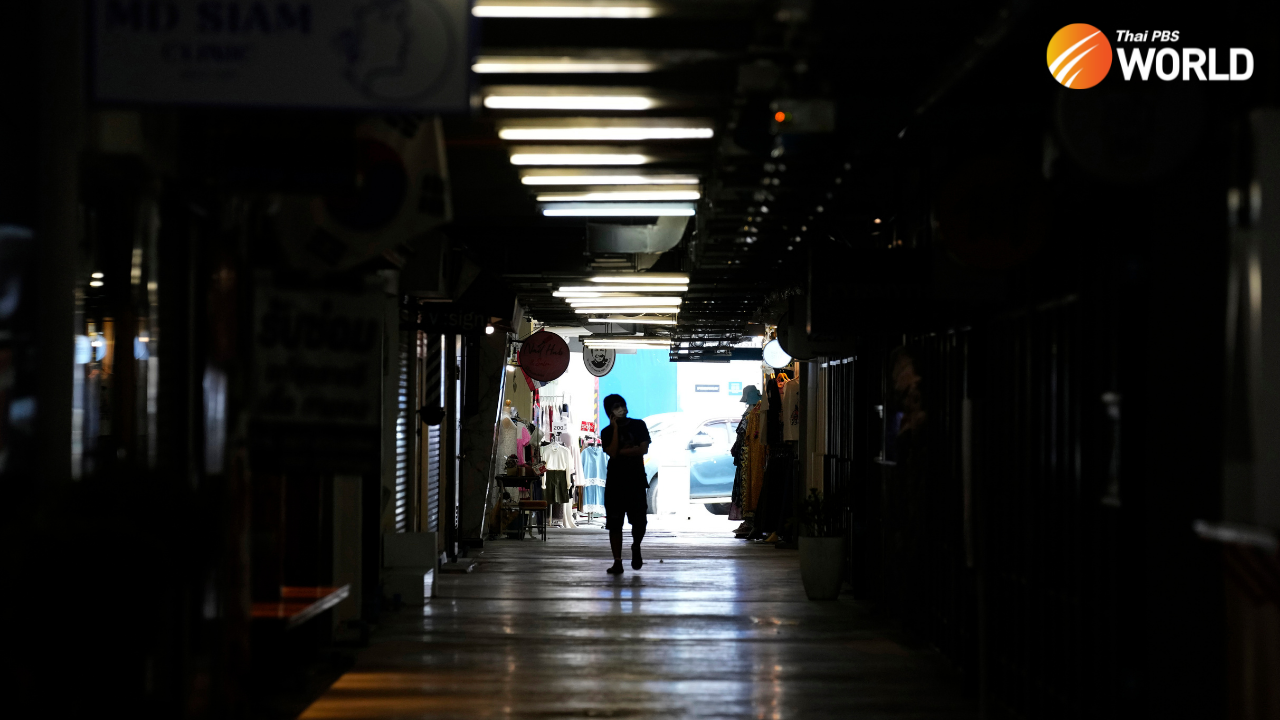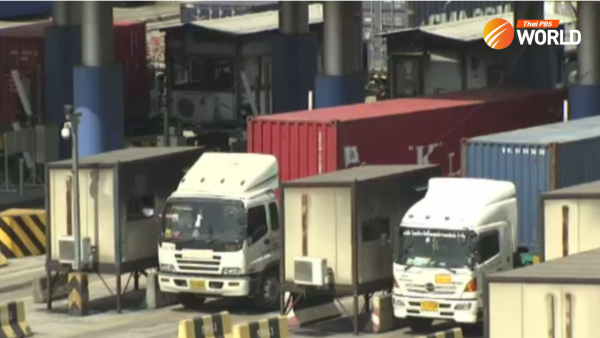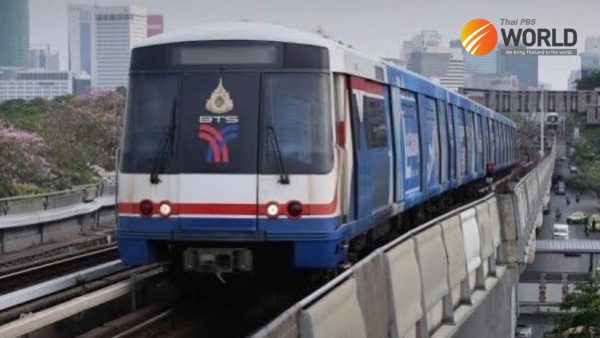Economic recovery hinges on whether relaxation of lockdown is sustainable

The government has started to ease some lockdown restrictions from September 1. Department stores have been allowed to reopen most of their services after being closed for a month.
Restaurants are allowed to serve a limited number of customers for indoor dining. Barbershops and beauty salons have been given the green light to reopen as has traditional Thai foot massage. Domestic flights will resume in early September.
The Public Health Ministry recently assured the country that daily COVID-19 infections have passed their peak. New daily cases have fallen below 20,000 in the past few days, signaling an improvement in the situation after the previous month saw a sharp spike in infections, a shortage of hospital beds, and soaring fatalities.
Prinn Panitchpakdi, the economic team leader of the Democrat Party, said that setting a 50 percent limit for customers at air-conditioned restaurants and 75 percent at open-air restaurants may cause unnecessary inconvenience to both operators and customers and also cannot prevent the virus from spreading.
Stocks and baht rise
Investor sentiment has been boosted by the decline in the rate of new COVID-19 cases, as a result, the Stock Exchange of Thailand Index has rallied above 1,600 since August 25, touching 1,638.75 on August 31. The baht has also rebounded after weakening to around Bt33 to the US dollar in the previous weeks, as foreign investors have bought more shares and bonds, injecting fresh optimism in the local financial market.
How real economic sectors are doing
The financial market is acting as a leading indicator on the recovery of the economy, while most economic real sectors remain under high pressure despite exports doing well. Thai exports expanded 21.7 percent in July, the fifth successive month of expansion, driven by the faster recovery of major economies such as the US, China, Japan, the European Union, and the UK.
The manufacturing sector has benefited from export growth but tourism continues to suffer under the weight of lockdown restrictions and the negative impact of the COVID situation aggravating in Thailand.
Indicators in July point to fewer economic activities than in June. Car sales were down 9.8 percent year on year and motorcycle registrations dropped 17.7 percent year on year, the Fiscal Policy Office said.
The Consumer Confidence Index dropped to 40.9 from 43.1 in June, as consumers were worried about the coronavirus continuing to spread. On the private investment side, commercial vehicle sales dropped sharply by 12 percent year on year, and 14.3 percent month on month. Sales of cement also fell 12 percent year on year and 10.2 percent from June. Business-specific tax on property transactions dropped by 11.6 percent.
Unemployment concerns
“The unemployment rate in the second quarter of the year was 1.89 percent. It is still an issue of concern,” said Danucha Pichayanan, secretary-general of the National Economic and Social Development Council.
The unemployment rate among new graduates was much higher, at 10.04 percent, compared to the previous quarter. The unemployment rate among new bachelor’s degree and vocational school graduates was 3.44 percent and 3.18 percent, respectively.
This suggests that businesses are reluctant to hire unskilled or inexperienced workers.
Those who are unemployed now might have to stay without a job much longer, as 147,000 people have been unemployed for more than 12 months, up 1.2 percent from the previous quarter.
Thailand’s private sector tells government – ‘No more lockdown restrictions’
The joint committee of Thailand’s three private sector organizations has told the government not to re-impose lockdown restrictions, but to accelerate vaccinations to cover 70% of the country’s population before the full reopening of the borders to foreign arrivals.
Haste in easing restrictions?
Critics are worried that a rush to relax restrictions might lead to an increase in new virus cases. Some are wondering if the authorities are being hasty to peg their decision to ease restrictions on just a few days of decline in new cases.
Vaccinations still slow
Only about 10 percent of the total population of 66 million has been fully vaccinated. The relatively small number of vaccinations combined with doubts about the efficacy of the doses against new variants, such as Delta, are a cause of worry for the people. The government announced a new plan to seek 140 million vaccine doses within this year, up from the previous plan of 120 million.
“We do not really know the reality of the pandemic situation. The decline in infections might be a result of only a small number of people being tested for the virus,” said Pipat Luengnaruemitchai, chief economist at Kiatnakin Phatra Securities. He demanded transparency and more information.
Other countries are also experiencing a surge in infections in spite of a large number of people being inoculated. Many countries are delaying reopening their cities to buy time for vaccinations. Thailand could learn from them, Pipat suggested.
Each business has to adopt measures that can reduce the risk of the virus spreading, he suggested.
New virus variant hits Thai exports
Thailand’s export growth in July decelerated from June’s 46.1 percent, as some countries experienced a new wave of the virus, affecting their consumption, the Bank of Thailand said.
Trading partners who experienced a surge in cases of the Delta variant in June-July had imposed lockdown restrictions. The new wave of infections hit hard the manufacturing sector of Thailand’s trading partners.
A shortage of semiconductors adversely affected Thai electrical products while the pandemic took a turn for the worse, hitting Thai food factories and the export of processed food.
The central bank had predicted that the Thai economy in August would remain under high pressure from the surge in new virus cases and the strict lockdown measures. The local manufacturing sector also would be further affected by supply chain disruption, shortage of shipping containers and the pandemic situation in other countries.
Risk of twin deficits
Some investors remain skeptical about the country’s financial situation as the country has twin deficits — fiscal and current accounts.
Before the end of August, Parliament had passed the annual budget worth Bt3.1 trillion with a deficit estimated at Bt700 billion, or 4.04 percent of GDP. The bill comes into effect from October 1. Deficit budgets are expected for some years due to falling tax revenue and the rising cost of combating the virus and relief spending.
Thailand’s current account deficit also is a result of a sharp fall in tourist arrivals in 2020 when the pandemic started. The current account had a US$3.4-billion deficit in the first quarter of this year, which increased to $5.2 billion in the second quarter. The deficit in July was $0.7 billion, increasing the total deficit to $9.3 billion year-to-date.
By Thai PBS World’s Business Desk






